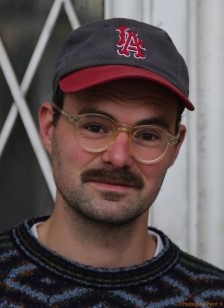
“MOSAIK works!” a probation officer enthusiastically answered as I asked her the classic question: What works? This exchange of words took place as I was conducting an extensive field work study observing daily life in two Danish probation offices and interviewing probation officers about their thoughts on rehabilitation and punishment.
MOSAIK is a Danish abbreviation for Motivational Conversation within the Prison and Probation Service. It contains a collection of evidence-based intervention procedures deployed as part of the supervision process that are designed to change the clients’ cognitive, criminogenic responses and thereby increase the likelihood for desistence.
Most of the probation officers that I spoke with or observed during client meetings are very pleased with MOSAIK and regard it as an effective tool for minimizing recidivism.
“The MOSAIK intervention […] where you work cognitively with peoples’ thoughts and try to change them is based in these ideas saying that you are the expert on your own life … and that you should take ow,nership over your own life … precisely in order to confront the expectation that you are supposed to live up to a certain set of ideals put forth by others.”
Stated by probation officer in an interview
MOSAIK is widely acclaimed as a tool that seeks to (re-)instate the clients in the “driver’s seats of their own cars” as probation officers often frame it “and make them responsible drivers”.
As I am writing this, there exist no systematically collected and methodologically treated numbers and graphs on the isolated effect of MOSAIK in a Danish context. So, we do not know much about whether it actually works. But, should it?
Quite naturally, there are certain goals that we would rather have the clients to set for themselves than others. MOSAIK, much like other psychologistic rehabilitative features within probation work, is driven by the effort to make clients choose for themselves a life style that we, the rest of society, want them to choose. As such, there is (of course, some might say) coercion at play in MOSAIK, yet, as I argue in greater detail in a forthcoming paper (Storgaard 2023) as well as in my forthcoming PhD dissertation, it seems to have been somewhat obscured – not only for the client, but to some extent for the probation officer as well.
There is good reason to take seriously the claims made by experienced professionals who have been part of the implementation of MOSAIK and who have now been working with the program for years. Yet, one may as well plausibly speculate whether the insisting on a need to work with the clients in order to make them stop committing crime may involve the risk that the clients internalize even further a criminal identity. It seems, one may argue, that the MOSAIK regime entails a personalization of a problem that may be more fairly represented as a structural one – that it represents the client as problematic, rather than the client’s problems as problematic for the client. At any rate, in my research I argue that there is viable theoretical reason to be somewhat skeptical towards the blunt assumption that MOSAIK interventions generally do offer clients a possibility to participate responsibly, just because this is an often-stated purpose of the program. And, according to its own logic this may impact the MOSAIK regime’s prospects for reducing recidivism.
References
Storgaard, Asbjørn. 2023. ‘Was wirkt? MOSAIK wirkt! Über motivierende Interventionsmethoden in der dänischen Gefangenen- und Bewährungshilfe’, Bewährungshilfe, 70 (forthcoming): 14-22.
About the author

Asbjørn Storgaard holds an MA in philosophy (2016) and is currently employed as a PhD Fellow at the School of Social Work, Lund University. With special attention to how social work seeks to rebuild parolees’ democratic competences and their ability and willingness to take on a participatory citizenship, he assesses the relationship between ideal and practice in the social work for minimizing recidivism in Scandinavia.
Contact: asbjorn.storgaard@soch.lu.se
